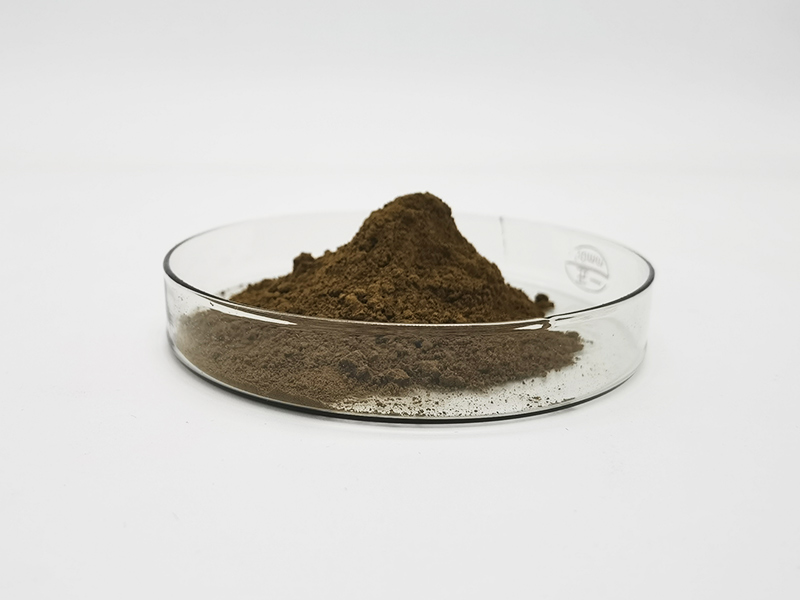Amentoflavone is a natural biflavonoid compound found in various plants, particularly in the genus Selaginella and in Ginkgo biloba. It belongs to the flavonoid group of compounds, which are known for their antioxidant and potentially therapeutic properties.
Here are some key points about amentoflavone:
1.Chemical Structure: Amentoflavone has a unique structure composed of two flavone units linked together. This gives it its characteristic biflavonoid nature.
2.Natural Sources: It is primarily found in plants such as Selaginella tamariscina (a type of clubmoss) and in extracts of Ginkgo biloba leaves. In traditional medicine, extracts containing amentoflavone have been used for their purported health benefits.
3.Biological Activity: Amentoflavone has been studied for its various biological activities, including:
Antioxidant: It exhibits strong antioxidant properties, which can help neutralize free radicals and reduce oxidative stress in the body.
Neuroprotective: It has shown potential neuroprotective effects in some studies, suggesting it may protect nerve cells from damage.
Anti-inflammatory: There is evidence to suggest that amentoflavone possesses anti-inflammatory properties, which could be beneficial for conditions involving inflammation.
Other Effects: It has also been investigated for its potential effects on bone health, skin health, and even as a modulator of cellular signaling pathways.

4.Research and Applications: Research on amentoflavone is ongoing, particularly in the fields of pharmacology and natural medicine. Scientists are exploring its potential applications in treating various diseases and conditions, though more clinical studies are needed to establish its efficacy and safety conclusively.
Overall, amentoflavone is an intriguing natural compound with a range of potential health benefits, derived from its antioxidant and other biological activities. Its presence in traditional medicines and ongoing scientific interest highlight its importance in natural product research.
How to use Amentoflavone?
Amentoflavone is a compound found in several plants and has been studied for its potential health benefits. Here are some common uses and considerations for using amentoflavone:
1.Supplements: Amentoflavone is often found in dietary supplements aimed at supporting various aspects of health, such as cognitive function, mood regulation, and immune support.
2.Dosage: The appropriate dosage of amentoflavone can vary depending on the specific supplement and its concentration. It’s essential to follow the dosage instructions provided on the supplement packaging or as advised by a healthcare professional.
3.Potential Benefits: Research suggests that amentoflavone may have antioxidant, anti-inflammatory, and neuroprotective properties. It has also been studied for its potential to support bone health and enhance cognitive function. However, more clinical studies are needed to confirm these benefits definitively.

4.Interactions and Side Effects: As with any supplement, it’s crucial to be aware of potential interactions with medications or other supplements you may be taking. Consult with a healthcare provider before starting amentoflavone supplements, especially if you have any underlying health conditions or are pregnant or breastfeeding.
5.Natural Sources: Amentoflavone naturally occurs in several plants, including Gingko biloba, Hypericum perforatum (St. John’s Wort), and Selaginella tamariscina. If you prefer natural sources, consuming these plants in their natural form might provide some amount of amentoflavone, though the concentration can vary.
6.Quality and Sources: When choosing a supplement containing amentoflavone, opt for reputable brands that conduct third-party testing to ensure quality and purity.
In summary, amentoflavone is primarily used as a dietary supplement for its potential health benefits, but it’s essential to use it responsibly, following recommended dosages and seeking advice from healthcare professionals when needed.
